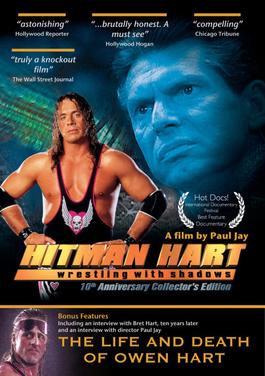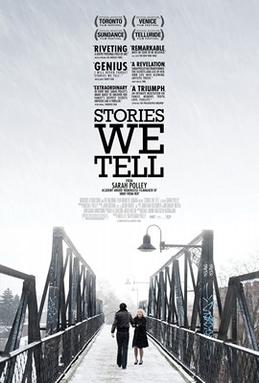Related Research Articles

John Grierson was a pioneering Scottish documentary maker, often considered the father of British and Canadian documentary film. In 1926, Grierson coined the term "documentary" in a review of Robert J. Flaherty's Moana.

William Norman McLaren, LL. D. was a Scottish Canadian animator, director and producer known for his work for the National Film Board of Canada (NFB). He was a pioneer in a number of areas of animation and filmmaking, including hand-drawn animation, drawn-on-film animation, visual music, abstract film, pixilation and graphical sound. McLaren was also an artist and printmaker, and explored his interest in dance in his films.
Roman Kroitor was a Canadian filmmaker who was known as a pioneer of Cinéma vérité, as the co-founder of IMAX, and as the creator of the Sandde hand-drawn stereoscopic 3D animation system. He was also the original inspiration for The Force. His prodigious output garnered numerous awards, including two BAFTA Awards, three Cannes Film Festival awards, and two Oscar nominations.

Frank Radford "Budge" Crawley, was a Canadian film producer, cinematographer and director. Along with his wife Judith Crawley, he co-founded the production company Crawley Films in 1939.

Hitman Hart: Wrestling with Shadows is a 1998 Canadian documentary film directed, produced and written by Paul Jay. It follows Bret "The Hitman" Hart during his last year in the WWF, from his World Wrestling Federation Championship victory at SummerSlam to his final match with the company and the infamous Montreal Screwjob at the pay-per-view Survivor Series on November 9, 1997.
Stephen Reid was a Canadian criminal and writer, who was a member of the notorious Stopwatch Gang and was also convicted twice of bank robbery. Reid served time in over 20 prisons in Canada and the United States.
Colin Archibald Low was a Canadian animation and documentary filmmaker with the National Film Board of Canada (NFB). He was known as a pioneer, one of Canada's most important filmmakers, and was regularly referred to as "the gentleman genius". His numerous honors include five BAFTA awards, eight Cannes Film Festival awards, and six Academy Award nominations.
Hugh O'Connor was a Canadian director and producer who worked for the National Film Board of Canada (NFB). His best- known film is the ground-breaking In the Labyrinth (1967), but his promising career ended shortly after that film's release when he was murdered while filming in Kentucky.

Thomas Cullen Daly was a Canadian film producer, film editor and film director, who was the head of Studio B at the National Film Board of Canada (NFB).

Stories We Tell is a 2012 Canadian documentary film written and directed by Sarah Polley and produced by the National Film Board of Canada (NFB). The film explores her family's secrets—including one intimately related to Polley's own identity. Stories We Tell premiered August 29, 2012 at the 69th Venice International Film Festival, then played at the 39th Telluride Film Festival and the 37th Toronto International Film Festival. In 2015, it was added to the Toronto International Film Festival's list of the top 10 Canadian films of all time, at number 10. It was also named the 70th greatest film since 2000 in a 2016 critics' poll by BBC.
John Kemeny was a Hungarian-Canadian film producer whom the Toronto Star called "the forgotten giant of Canadian film history and...the most successful producer in Canadian history." His production credits include The Apprenticeship of Duddy Kravitz, Atlantic City, and Quest for Fire.

Albert Kish was a Canadian documentarian/filmmaker.
Prologue is a 1970 National Film Board of Canada feature from Robin Spry, shot and set in Montreal and Chicago, blending drama with documentary sequences from the 1968 Democratic National Convention protests.
The 25th Canadian Film Awards were announced on October 12, 1973, to honour achievements in Canadian film.
The 22nd Canadian Film Awards were held on October 3, 1970 to honour achievements in Canadian film. The ceremony was hosted by broadcaster Bill Walker.
The Bronswik Affair is a 1978 Canadian short film, directed by Robert Awad and André Leduc for the National Film Board of Canada.
Farewell Oak Street is a 1953 Canadian docudrama short film, directed by Grant McLean for the National Film Board of Canada (NFB).
The 11th Canadian Film Awards were held on June 5, 1959 to honour achievements in Canadian film.
The 6th Canadian Film Awards were presented on May 10, 1954 to honour achievements in Canadian film.
Les Philharmonistes is a Canadian documentary film, directed by Yves Leduc and released in 1971. The film centres on a group of workers at the Casavant Frères organ factory in Saint-Hyacinthe, Quebec, who are also active as an amateur orchestra.
References
- ↑ Harris Kirshenbaum, "Film Reviews: Coming Home". Cinema Canada , August/September 1974. pp. 74-75.
- ↑ Geoff Alexander, Films You Saw in School: A Critical Review of 1,153 Classroom Educational Films (1958-1985) in 74 Subject Categories. McFarland & Company, 2013. ISBN 9780786472635. pp. 42-43.
- ↑ Maria Topalovich, And the Genie Goes To...: Celebrating 50 Years of the Canadian Film Awards. Stoddart Publishing, 2000. ISBN 0-7737-3238-1. pp. 111-114.